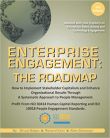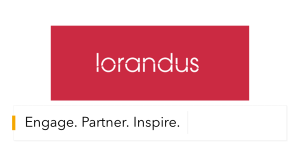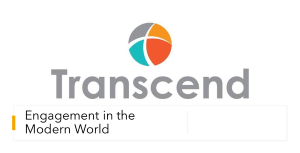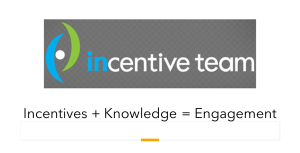It's Not CSR, It's Corporate Social Opportunity
The well-meaning concept of Corporate Social Responsibility (CSR) is hampering the Stakeholder Capitalism movement as well as Diversity, Equity, and Inclusion (DEI). CSR unnecessarily supports the position of those opponents who argue that Stakeholder Capitalism and DEI are focused on diverting money from shareholders to the pet causes of CEOs or in response to pressures from outside groups.
 The fundamental premise of Stakeholder Capitalism is that addressing the interests of all stakeholders is not a trade-off but rather a means to enhance sustainable, long-term returns for shareholders by growing the pie for all stakeholders. This applies to addressing societal issues, such as poverty, disease, under-education, and pollution. Almost every organization can benefit from investing in specific local, national, or international issues to the benefit of shareholders if they are aligned with and support the organization’s purpose.
The fundamental premise of Stakeholder Capitalism is that addressing the interests of all stakeholders is not a trade-off but rather a means to enhance sustainable, long-term returns for shareholders by growing the pie for all stakeholders. This applies to addressing societal issues, such as poverty, disease, under-education, and pollution. Almost every organization can benefit from investing in specific local, national, or international issues to the benefit of shareholders if they are aligned with and support the organization’s purpose. An Opportunity, Not an Obligation
The very name Corporate Social Responsibility implies that investing in community needs is an obligation and a deductible charitable donation, not part of the organization’s strategic plan. This of course risks politicizing these expenditures; puts them immediately in jeopardy during economic downturns, and can draw the ire of skeptical shareholders.
Corporate Social Opportunity differs from CSR in that it seeks to identify specific social or environmental issues whose solution could provide a benefit to the organization—providing a much more sustainable motivation for such activities to which shareholders cannot as easily object. Numerous examples of this approach exist, notably from the Shared Values business movement--see ESM: Shared Value Helps Explain Why Shareholders Can Gain with Stakeholder Capitalism; and other approaches, including Economics of Mutuality, see ESM--Economics of Mutuality, and the work of Alex Edmans, notably his book, Grow the Pie: How Great Companies Deliver Both Purpose and Profit.
Multiple examples exist of organizations that turn social challenges into profit centers, thereby creating far more positive and sustainable initiatives than those born of a sense of responsibility. The benefits can be both financial and experiential, creating good will and positive brand equity that result in higher talent and employee retention, lower talent and customer acquisition costs, greater professional development, enhanced emotional connections, and more.
The Foundation of Corporate Social Opportunity
Like any other human capital initiative, the CSO process begins with the organization’s strategic plan: what is the purpose of the organization, values, and culture, as well as business objectives related to customers, employees, supply chain and distribution partners, and communities.
The next step is to identify key challenges related to these stakeholder groups within your organization. What issues can an organization address that will help acquire and retain talent, enhance employee productivity and quality, and willingness of all stakeholders to recommend.
For employees, the obvious application of Corporate Social Opportunity is to support or help create local education programs in disadvantaged areas to support the skills required to become an eventual employee at any level. This of course enables the organization to develop an early relationship with the students and the community and to identify eventual interns or employees at all levels. The process also creates meaningful mentoring opportunities for employees. Depending on the community, other activities might include supporting affordable housing, health clinics, clean water or air pollution mitigation efforts that create a better life for employees. Another application is supporting a cause important to the employees as identified in feedback or employee resource groups, which can help enhance their sense of meaning at work. Beyond the opportunity for talent and customer recruitment and good will, the concrete benefit can be healthier, more productive employees and communities engaged in the mission of the organization.
For customers, the immediate opportunity already used by myriad organizations is to support causes that resonate with their customers and employees. This is a marketing-driven decision and can be measured in many ways depending on the organization, which explains why supporting charitable activities are an important part of almost any organization’s marketing programs today.
Supply chain and distribution partners. One of the often overlooked areas of business excellence is the ability to build strong supply chain and distribution partner relationships. The pandemic shed a new spotlight on the importance of having strong supply chain and distribution relationships, as that became a competitive opportunity for those who could obtain inventory and get it quickly to market. Having a strong distribution network like Amazon, Apple, Google and Microsoft who have developed legions of loyal resellers building businesses on their platforms is the envy of anyone in business.
With non-whites and other minority demographics now adding up to enormous marketplaces, organizations have an opportunity to make sure they are tapping alternative supply chain and distributor markets almost essential to gain access to non-white communities. Helping to develop supply chain and distribution partners lifts the community by creating wealth for local businesses and brings new choices for products and services to the community.
Other Resources
Dedicated to helping organizations diversify their supply chains.
A leader in a strategic approach to philanthropy.
Click here to get ESM news delivered each week.
Master the “S” of Environmental, Social, Governance (ESG), A.k.a. Stakeholder Capitalism
The Enterprise Engagement Alliance at TheEEA.org is the world’s first and only organization that focuses on outreach, certification and training, and advisory services to help organizations achieve their goals by fostering the proactive involvement of all stakeholders. This includes customers, employees, distribution and supply chain partners, and communities, or anyone connected to an organization’s success.
Training and Thought Leadership
- Founded in 2008, the Enterprise Engagement Alliance provides outreach, learning and certification in Enterprise Engagement, an implementation process for the “S” or Social of Stakeholder Capitalism and Human Capital Management and measurement of engagement across the organization.
- The Enterprise Engagement Alliance provides a training and certification program for business leaders, practitioners, and solution providers, as well as executive briefings and human capital gap analyses for senior leaders.
- The EEA produces an education program for CFOs for the CFO.University training program on Human Capital Management.
- Join the EEA to become a leader in the implementation of the “S” of ESG and Stakeholder Capitalism.
- The ESM information portal and The Enterprise Engagement Advisors Network solution provider marketplace cover all aspects of stakeholder engagement, and the EEA information library lists dozens of resources.
- The RRN information portal and Brand Media Coalition marketplace address the use of brands for gifting, incentives, recognition, and promotions. The BMC information library provides information and research resources.
Video Learning
The EEA Human Capital Management and ROI of Engagement YouTube channel features a growing library of 30- to 60-minute panel discussions with leading experts in all areas of engagement and total rewards.
- Enterprise Engagement for CEOs: The Little Blue Book for People-Centric Capitalists. A quick guide for CEOs.
- Enterprise Engagement: The Roadmap 5th Edition implementation guide. A comprehensive textbook for practitioners, academics, and students.
Enterprise Engagement Advisory Services
The Engagement Agency helps:
- Organizations of all types develop strategic Stakeholder Capitalism and Enterprise Engagement processes and human capital management and reporting strategies; conduct human capital gap analyses; design and implement strategic human capital management and reporting plans that address DEI (Diversity, Equity, and Inclusion), and assist with managed outsourcing of engagement products and services.
- Human resources, sales and marketing solution providers profit from the emerging discipline of human capital management and ROI of engagement through training and marketing services.
- Investors make sense of human capital reporting by public companies.
- Buyers and sellers of companies in the engagement space or business owners or buyers who seek to account for human capital in their mergers and acquistions.
For more information: Contact Bruce Bolger at Bolger@TheICEE.org or call 914-591-7600, ext. 230.


















